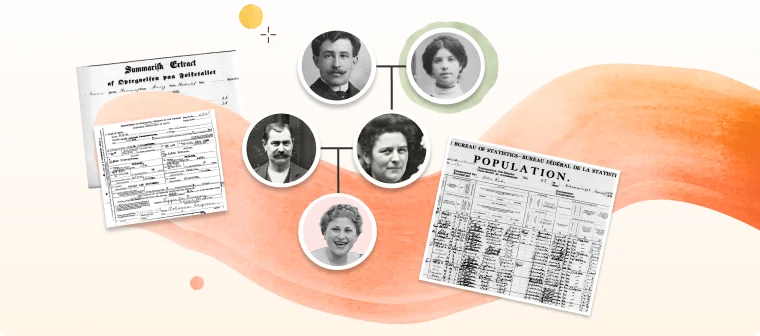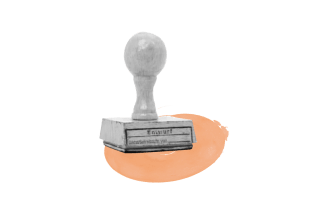Name Directory by Last Name: Last Names Starting with Ya
Explore millions of names to discover rich genealogical details and uncover your family's history
Enter a name to research
Last name meanings and origins
- Yates
The surname Yates has its historical origins in England, deriving from the Old English personal name "Geat," which means "gate" or "dweller by the gate." The name first appeared in written records in the 13th century, particularly in the northern regions of England. Over time, Yates evolved as a locational surname, often associated with individuals who lived near a gate or a significant entrance to a town or estate.
- Yang
The surname Yang has its historical roots in China, where it is one of the most common surnames, ranking among the top ten in the country. The origins of the surname can be traced back to ancient times, with some sources suggesting that it may have derived from the name of a state during the Zhou Dynasty (1046–256 BC) called Yang, located in present-day Henan province.
- Yamamoto
The surname Yamamoto has its roots in Japan, where it is believed to have originated during the feudal period, particularly in the Heian era (794-1185). The name is derived from the Japanese words "yama," meaning "mountain," and "moto," meaning "base" or "origin," which together can be interpreted as "base of the mountain." This suggests a geographical connection, possibly indicating that the early bearers of the name lived near mountainous regions or were associated with the natural landscape.
- Yamada
The surname Yamada (山田) has its roots in Japan, where it is derived from the combination of two kanji characters: "yama" (山), meaning "mountain," and "da" (田), meaning "rice field." This suggests a geographical origin, likely referring to families who lived near mountainous areas with rice cultivation. The surname can be traced back to various regions in Japan, particularly in the mountainous areas of Honshu, where agriculture played a significant role in the local economy.
- Yarbrough
The surname Yarbrough has its historical roots in England, with its earliest appearances traced back to the medieval period. The name is believed to derive from the Old English elements "eorþe," meaning earth or land, and "burh," meaning fort or fortified place, suggesting a geographical origin related to a settlement near a fortified site.
- Yancey
The surname Yancey has its historical roots in England, with its earliest appearances dating back to the medieval period. It is believed to be derived from the Old French name "Jans," which itself is a diminutive of "Jean," meaning "John." The surname likely emerged as a patronymic, indicating "son of Jan" or "son of John." Over time, Yancey became associated with various occupations, particularly in agriculture and trade, as many bearers of the name were involved in farming or local commerce.
- Yarborough
The surname Yarborough has its historical roots in England, with its earliest appearances traced back to the medieval period. The name is believed to derive from a place name, specifically from the village of Yarborough in Lincolnshire, which itself is thought to mean "the fortified place by the river" or "the hill by the river." This geographical association suggests that the original bearers of the surname were likely linked to the land, possibly as landowners or tenants.
- Yamaguchi
The surname Yamaguchi has its roots in Japan, where it is derived from the combination of two kanji characters: "yama" (山), meaning "mountain," and "guchi" (口), meaning "mouth" or "entrance." This suggests a geographical origin, likely referring to a location at the base of a mountain or a valley entrance. Historically, the name can be traced back to various regions in Japan, particularly in the western part of the country, where mountainous landscapes are prevalent.
- Yager
The surname Yager has its historical roots primarily in Germany, where it is derived from the Middle High German word "jager," meaning "hunter." This occupational surname likely originated in the medieval period, when surnames began to be adopted more widely, around the 12th century. The role of a hunter was significant in agrarian societies, as it not only provided food but also indicated a person's skills and social standing.
- Yamashita
The surname Yamashita has its roots in Japan, where it is derived from the combination of two kanji characters: "yama" (山), meaning "mountain," and "shita" (下), meaning "below" or "beneath." This suggests a geographical origin, likely referring to families that lived at the base of a mountain or in a valley. The surname first appeared in historical records during the feudal period, particularly in the context of samurai clans and landholding families.
- Yamazaki
The surname Yamazaki has its roots in Japan, where it is believed to have originated from the combination of two kanji characters: "yama" (山), meaning "mountain," and "zaki" (崎), meaning "cape" or "promontory." This suggests a geographical connection, likely referring to families that lived near mountainous regions or coastal areas with prominent landforms. The surname can be traced back to various regions in Japan, particularly in the Kansai area, where it has been associated with samurai clans and local governance.
- Yan
The surname Yan has its historical roots primarily in East Asia, particularly within Chinese culture, where it is represented by the character 燕, which can mean "swallow" (the bird) or refer to the ancient state of Yan during the Zhou Dynasty. The surname is believed to have originated over 2,500 years ago, with its earliest records found in the Shiji (Records of the Grand Historian) by Sima Qian.
- Yale
The surname Yale has its historical roots in England, with its earliest appearances traced back to the medieval period. The name is believed to derive from the Old English word "geal," meaning "a fertile place" or "a meadow," which reflects the geographical features of the areas where the name was first used.
- Yardley
The surname Yardley has its historical roots in England, particularly deriving from the Old English elements "geard," meaning "enclosure" or "yard," and "leah," meaning "wood" or "clearing." This suggests that the name originally referred to someone who lived near or worked in a yard or clearing in a wooded area. The earliest recorded instances of the surname date back to the medieval period, with variations appearing in different regions.
- Yakovlev
The surname Yakovlev has its roots in Russia, deriving from the given name Yakov, which is the Slavic form of Jacob. Historically, the name Jacob has biblical origins, meaning "supplanter" or "holder of the heel," and it has been a common name in various cultures.
- Yard
The surname Yard has its historical roots primarily in England, where it is believed to have originated as a topographic name for someone who lived near a yard or enclosure, derived from the Old English word "geard," meaning "enclosure" or "garden." The name first appeared in written records during the medieval period, with its usage becoming more common as surnames began to stabilize in the 13th century. Over time, individuals bearing the surname Yard may have been associated with agricultural roles or as caretakers of enclosed lands, reflecting the agrarian society of the time.
- Yancy
The surname Yancy has its roots in the United States, deriving from the given name "Yancey," which is believed to have originated from the Old English personal name "Jansey," a diminutive of "John." The name gained prominence in the 19th century, particularly in the Southern states, where it was often associated with families of English descent. The Yancy surname is thought to have connections to occupations related to farming and land ownership, reflecting the agrarian lifestyle of many early American settlers.
- Yarnell
The surname Yarnell has its historical roots in England, with its earliest appearances traced back to the medieval period. The name is believed to be derived from the Old English personal name "Eorcnan," which means "the one who is strong" or "brave." Over time, the surname evolved, with variations such as "Yarnall" and "Yarnel" appearing in different records.
- Yasuda
The surname Yasuda has its historical roots in Japan, where it is believed to have originated during the feudal period. The name is derived from the Japanese characters "安" (yasu), meaning "peace" or "safe," and "田" (da), meaning "rice field." This suggests a connection to agrarian life, indicating that the original bearers of the surname may have been farmers or landowners associated with rice cultivation, which has been a staple of Japanese society.
- Yaeger
The surname Yaeger, also spelled as Jaeger or Jäger, has its roots in the German language, deriving from the Middle High German word "jager," which means "hunter." This occupational surname first appeared in the medieval period, particularly in regions of Germany, where hunting was a significant activity both for sustenance and as a noble pursuit. The name reflects the social roles of those who bore it, often associated with the nobility or those who held positions in the royal courts as gamekeepers or hunters.
- Yanez
The surname Yanez has its roots in the Spanish-speaking world, deriving from the given name "Juan," which itself is a variant of the Hebrew name "Yohanan," meaning "God is gracious." The surname Yanez is a patronymic surname, indicating "son of Yano" or "son of Juan." It first appeared in the Iberian Peninsula during the Middle Ages, a period marked by the Christian Reconquista and the establishment of various noble families. As a common surname in Spain and Latin America, Yanez has been associated with various occupations, particularly in agriculture and trade, reflecting the agrarian lifestyle of many early bearers.
- Yastrzemski
The surname Yastrzemski has its roots in Poland, deriving from the Polish word "yastrzemb," which translates to "hawk." This suggests that the name may have originally been a nickname for someone who exhibited traits associated with hawks, such as keen vision or a predatory nature. The surname likely emerged in the medieval period, a time when surnames were often based on occupations, physical characteristics, or local geography.
- Yano
The surname Yano has its historical roots primarily in Japan, where it is believed to have originated from the combination of the characters "ya" (屋), meaning "house" or "shop," and "no" (野), meaning "field" or "wild." This suggests a connection to a geographical feature or a profession related to agriculture or trade. The Yano surname can be traced back to various regions in Japan, particularly in the Kanto and Kansai areas, where it was associated with families engaged in farming or local commerce.
- Yao
The surname Yao has its historical roots primarily in China, where it is associated with various ethnic groups, including the Han Chinese. The name is believed to have originated from the ancient practice of naming based on geographical features or occupations.
- Yamauchi
The surname Yamauchi has its historical roots in Japan, where it is believed to have originated during the feudal period. The name is derived from the Japanese words "yama," meaning "mountain," and "uchi," meaning "inside" or "within," which can be interpreted as "within the mountains." This suggests a geographical connection to mountainous regions, possibly indicating that the early bearers of the surname lived in or were associated with such areas.
- Yarwood
The surname Yarwood has its historical roots in England, particularly in the northern regions, where it is believed to have originated from the Old English elements "geard," meaning "enclosure" or "yard," and "wudu," meaning "wood." This suggests that the name may have originally referred to someone who lived near a wooded enclosure or a homestead surrounded by trees. The earliest records of the surname date back to the medieval period, with variations appearing in historical documents as the English language evolved.
- Yawkey
The surname Yawkey has its historical roots primarily in the United States, particularly associated with the New England region. The name is believed to have originated from the Gaelic surname "O'Seachnasaigh," which translates to "descendant of Seachnasach," a personal name meaning "the one who is sought after." The Yawkey surname first appeared in the early 20th century, gaining prominence through notable figures such as Thomas Yawkey, who was a prominent businessman and owner of the Boston Red Sox from 1933 until his death in 1976.
- Yamanaka
The surname Yamanaka has its roots in Japan, where it is believed to have originated from the combination of the words "yama," meaning "mountain," and "naka," meaning "middle" or "inside." This suggests a geographical connection, possibly referring to families that lived in mountainous regions or valleys. The Yamanaka name can be traced back to various historical periods in Japan, particularly during the feudal era, when surnames became more formalized.
- Yarnall
The surname Yarnall has its historical roots in England, particularly in the region of Yorkshire, where it is believed to have originated. The name is thought to derive from the Old English personal name "Eorcnan," which means "the one who is strong" or "brave." Over time, the surname evolved, with variations appearing in spelling such as "Yarnall," "Yarnell," and "Yarnel." The name was often associated with individuals who held specific occupations or social roles, such as weavers or those involved in the textile industry, reflecting the economic activities prevalent in the region during the medieval period.
- Yanes
The surname Yanes has its historical roots primarily in the Spanish-speaking world, deriving from the given name "Juan," which itself is a variant of the Hebrew name "Yohanan," meaning "God is gracious." The surname Yanes likely emerged in the medieval period, particularly in Spain, where the use of patronymic surnames became common. As families began to adopt surnames based on the names of their ancestors, Yanes would have been used to denote "son of Juan." Over time, individuals bearing this surname may have engaged in various occupations, often linked to agrarian or artisan roles, reflecting the socio-economic conditions of their regions.
- Yarrow
The surname Yarrow has its historical roots in England, particularly associated with the Old English word "gearwe," which refers to the yarrow plant, known for its medicinal properties. The name likely originated as a topographical surname for individuals living near a yarrow plant or in a region where it was abundant.
- Yagi
The surname Yagi has its roots in Japan, where it is believed to have originated from the combination of the characters "八" (ya), meaning "eight," and "木" (gi), meaning "tree." This suggests a connection to nature, possibly indicating a geographical feature or a family that lived near a significant grove or forest. Historically, surnames in Japan often reflected the landscape or the occupation of the family, and Yagi may have been associated with those who were involved in agriculture or forestry.
- Yarger
The surname Yarger has its historical roots primarily in the Germanic regions, particularly associated with the name "Jäger," which translates to "hunter" in German. The surname likely emerged in the medieval period, when surnames began to be adopted based on occupations, geographical features, or personal characteristics.
- Yandell
The surname Yandell has its historical roots in England, with its earliest appearances traced back to the medieval period. The name is believed to be a variant of the Old English personal name "Gandulf," which combines the elements "gand," meaning "spear," and "wulf," meaning "wolf." This suggests a warrior lineage, as the name may have originally been associated with individuals who were skilled in battle or held positions of significance within their communities.
- Yam
The surname Yam has its roots in various cultures, with notable historical significance in both Jewish and Asian contexts. In Hebrew, "Yam" translates to "sea," and it is often associated with geographical features or occupations related to water, such as fishing or maritime trade.
- Yapp
The surname Yapp has its historical roots in England, with its earliest appearances dating back to the medieval period. It is believed to be derived from the Old English personal name "Gēap," which means "wide" or "broad." The surname likely developed as a patronymic, indicating "son of Gēap," and may have been associated with individuals who were known for their physical stature or perhaps their broad-mindedness.
- Yamasaki
The surname Yamasaki has its roots in Japan, where it is believed to have originated from the combination of the kanji characters "山" (yama), meaning "mountain," and "崎" (saki), meaning "cape" or "promontory." This suggests a geographical connection, likely referring to families who lived near mountainous regions or coastal areas with prominent landforms. The surname can be traced back to various regions in Japan, particularly in the Kansai area, where many families adopted surnames based on local geography during the Edo period (1603-1868).
- Yarrington
The surname Yarrington has its historical roots in England, with its earliest appearances traced back to the medieval period. The name is believed to be locational, derived from places named Yarrington in Somerset and other regions, which likely means "the settlement by the river Yare." The suffix "-ton" typically denotes a town or settlement, while "Yare" may refer to a river or stream, indicating a geographical feature significant to the community.
- Yate
The surname Yate has its historical roots in England, with its earliest appearances dating back to the medieval period. The name is believed to derive from the Old English word "geat," meaning "gate" or "opening," which may have referred to a geographical feature or a location near a gate or entrance.
- Yaw
The surname Yaw has its historical roots primarily in the English-speaking world, particularly in regions of the United Kingdom. It is believed to be derived from the given name "Yaw," which is a variant of "Yahweh," a name with biblical significance.
Start your family tree for free
Start by entering a few names and MyHeritage will do the rest, so you can make meaningful discoveries

Explore historical records

Explore 1,810,427,080 census and voter list records to get a detailed snapshot of your ancestors' lives. Discover names, ages, occupations, family relationships, residences, and much more.

Explore 4,647,704,406 birth, marriage, and death records. Uncover valuable details about major family milestones and find names, dates, places, occupations, and residences of your ancestors and relatives.

Search 266,544,192 military records and discover the stories of courage and resilience in your family history. Military records include enlistment dates, ranks, locations, and even physical descriptions.
Embark on a fascinating journey to discover your family history

Start by adding a few names. Myheritage's automatic matching technology will help you expand your family tree and delight you with new discoveries.

Reveal your ethnic origins and find relatives you never knew existed with our simple DNA kit.

Dive into MyHeritage's international collection of 36.7 billion historical records - start with a name of an ancestor and see what our collections can reveal about your family history.
About MyHeritage

MyHeritage is the leading global platform for family history. It enriches the lives of people worldwide by enabling them to uncover more about themselves and where they belong. With a suite of intuitive products, billions of historical records, an affordable at-home DNA test, and AI-powered photo tools, MyHeritage creates a meaningful discovery experience that is deeply rewarding. The MyHeritage platform is enjoyed by tens of millions of people around the world who treasure and celebrate their heritage.








